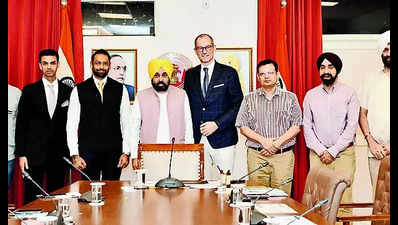The way the typical family unit looks has steadily changed in recent decades and Aussie parents are calling for an end to the stigma behind so-called "triangle families", which is becoming the new normal for millions all around the world. In Australia, the number of single child families has doubled in the past 40 years. Now, a growing number of parents are out to prove that only child syndrome is a myth.
In 1981, 7.6 per cent of women in Australia aged 40 to 44 only ever had one child. In 2021, that number more than doubled to 16.

3 per cent. In the EU, triangle families are the most common dynamic, making up 49 per cent of all households with children. Many parents in Australia these days live in very different circumstances than they would have decades ago, experts say, and therefore having multiple children simply doesn't suit their lifestyles and .
Many Australians have chosen to further their careers and travel over having multiple kids, and it's trend experts believe is set to continue, . Aussie mum-of-one Heather Hunt said it's "really important" people understand how "amazing" a family of just three can be. "A family with just one child — we've chosen it," Hunt told .
"But if you can't [have multiple children] please be rest assured you'll have an amazing family experience and your child won't be disadvantaged. "I was an only child myself and I had a really great experience and I don't think I missed out from not having siblings. For her and partner Brendan, having just one child meant being able to do more in other areas of life.
"We both wanted to maintain our careers as well as our lifestyles," she told the program on Thursday night. Hunt's sentiment is is reflected in official figures, with ABS data revealing , and are doing so later in life. Last year, research from baby-products subscription service Pebbl revealed a third (34 per cent) of Australians believed the rising cost of living made it too hard for young parents to provide the necessary things for a child.
A further one-sixth (14 per cent) of , nine per cent had delayed having a baby, and six per cent decided not to have a baby at all due to rising costs. For dad Brendan Hunt, affordability loomed large when thinking about family size. "For me, the drive was almost financial," he told The Project.
"Thinking about how tough it is these days for kids to get into a house, I love the idea of leaving everything behind for one child, and really making sure she's established," he said. As a result of just having one child, he added, the trio have been afforded the luxury of travelling together, something the family might not have to do if they had multiple children. According to parenting educator and author Rosina McAlpine a long held stereotype that only children were "lonely and spoiled" and had worse social skills than their peers with siblings was based on faulty science and was simply not true.
In previous decades "society and your family would put a lot of pressure on you [to have more children]", she told the ABC recently. "Nowadays, people are more empowered to make their own choice." At the same time, the health complications that can arise from having children later in life and have weighed on birth rates in Australia and across much of the developed world.
"There has also been an uptick in mental health and physical health problems, which makes it more challenging to have more children.".


















